#chinese temple
Explore tagged Tumblr posts
Text
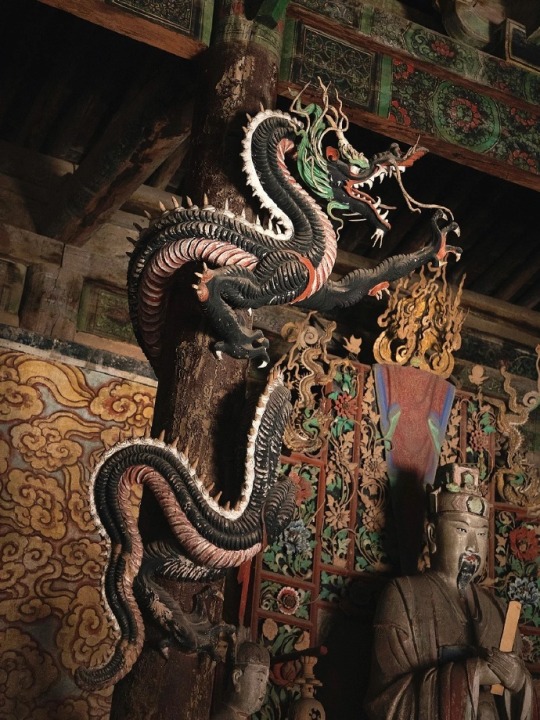
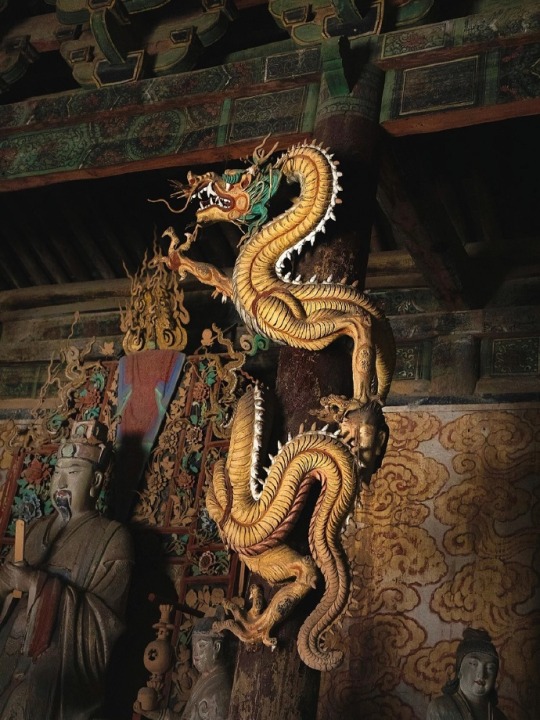
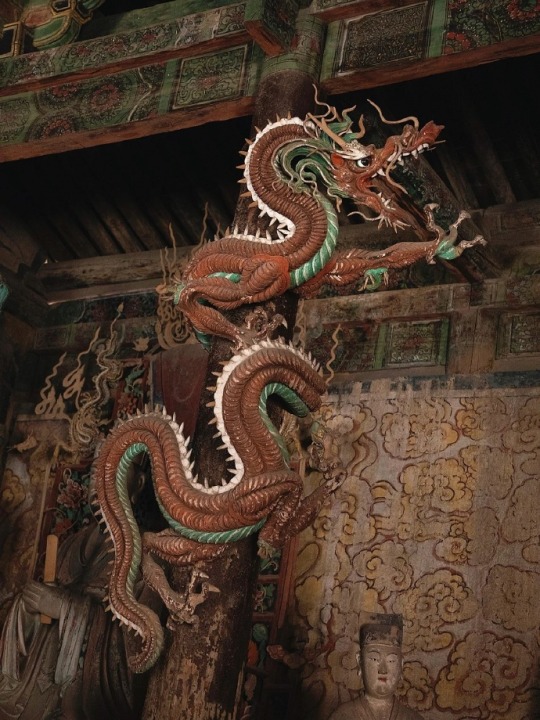
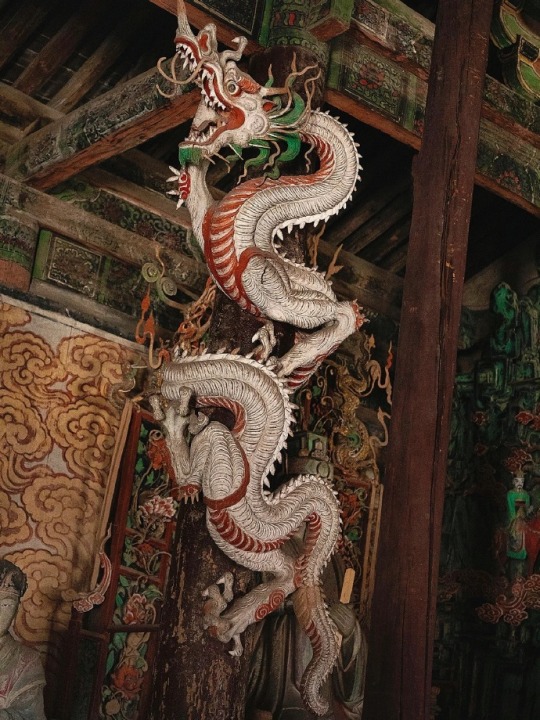

Mythological Realism: Elemental Dragons
Four-color coiled dragons on the pillars of the Supreme Talisman (Taifu) Temple (太符觀).
The dragons are painted in the colors of the primary elements, embodying the archetypal creative forces. In Chinese religious art, almost any concept can be expressed in the language of dragons.) Their children, descendants and relatives frolic on the temple walls among curly clouds.
In view of the striking liveliness, I would classify these images as mythological realism.)
Since its construction in the fifth year of the Jin dynasty (1200), the temple has been repeatedly expanded and supplemented with new buildings over the centuries. Most of the surviving statues are from the Ming dynasty.
The Supreme Talisman Temple is located in Fenyang (汾陽), Shanxi.
Photo: ©故尔耳
#ancient china#chinese culture#chinese art#chinese mythology#ming dynasty#taoist practices#religious art#chinese temple#Taoist temple#taoism#taoist#statue#sculptures#statues#daoism#jin dynasty#dragon#dragons#dragon art#creatures#wood carving#woodworking#temple architecture#wooden architecture#wooden buildings#chinese architecture
589 notes
·
View notes
Text

Chinese Temple in Singapore
British vintage postcard
#postal#historic#ansichtskarte#chinese#sepia#vintage#tarjeta#briefkaart#photo#chinese temple#british#singapore#postkaart#ephemera#postcard#postkarte#photography#temple#carte postale
12 notes
·
View notes
Text





exploring the chinese garden 🐲🌿
greeted by the kirin at the gate, you can enjoy nature as you stroll between traditional chinese pagodas.
afterwards, let's stop for a cup of tea in the gazebo and get lost in thoughts while admiring the magnificent ornaments...
the best kind of rest, isn't it?
#aesthetic#dark aesthetic#dreamy#dark#dark grunge#film photography#film#mystery#35mm film#film camera#35mm#35mm photography#kirin#chinese garden#chinese dragon#chinese mythology#mythical creatures#pagoda#chinese temple#retro aesthetic#nostalgia#nostalgic#komorebi#blue aesthetic#horror aesthetic#horror photography#horror#cinematic photography#traditional architecture#chinese architecture
5 notes
·
View notes
Text

#zen#temple#buddhism#buddhist temple#zen temple#zen buddhism#china#chinese culture#japanese culture#chinese temple#japanese temple#japan
4 notes
·
View notes
Text

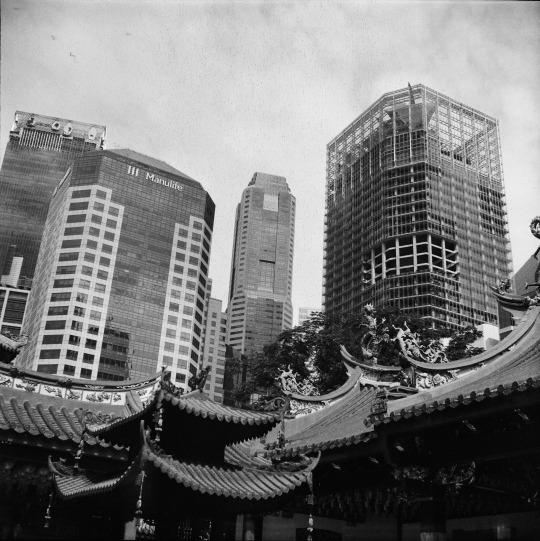
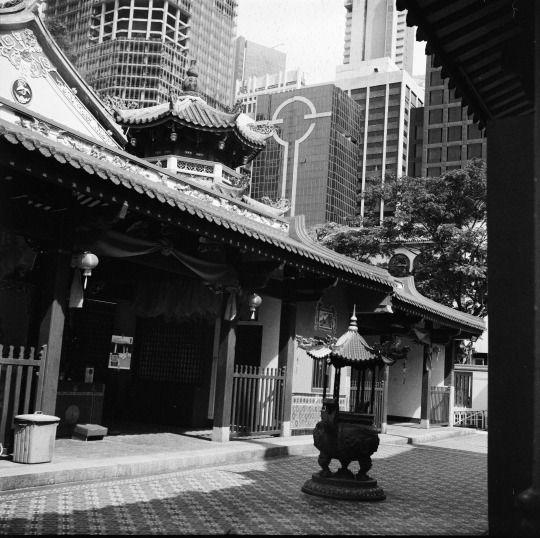


Thian Hock Keng Singapore
Fomapan 200 120 film
#35mm#film photography#photographers on tumblr#black and white#medium format#120 film#singapore#thian hock keng#mazu#chinese temple#temple#architecture#fomapan
4 notes
·
View notes
Text



From: the video princess of china
Dress: Marcellina Gracia Model: MMEarlene Videography: Koharo n arief Rachman Editing: MMEarlene
#gif#fashion#aesthetic gif#fashion photography#MMEarlene#chinese temple#high fashion#formal dress#fashion gif#model#fashion photoshoot#chinese arquitecture#fashion film#chinese fashion
2 notes
·
View notes
Text

Chinese temple doors, Wutai Shan, Shanxi, China
2 notes
·
View notes
Photo

Shaolin disciple - Guandu, 2019
#picoftheday#travel#yunnan#china#original photographers#photographers on tumblr#streetphoto color#martial arts#shaolin#chinese architecture#chinese temple#photooftheday
10 notes
·
View notes
Text
youtube
Pekin (1919)
#pekin#china#chinese art#pekinese#ancient china#beijing#circa 1919#1910s#北京#中国#艺术#ancient city#ancient civilizations#ancient history#traditional art#chinese mythology#chinese culture#chinese cinema#chinese literature#chinese history#chinese film#chinese folklore#chinese style#chinese painting#chinese proverb#chinese poetry#chinese temple#chinese music#Youtube
0 notes
Text

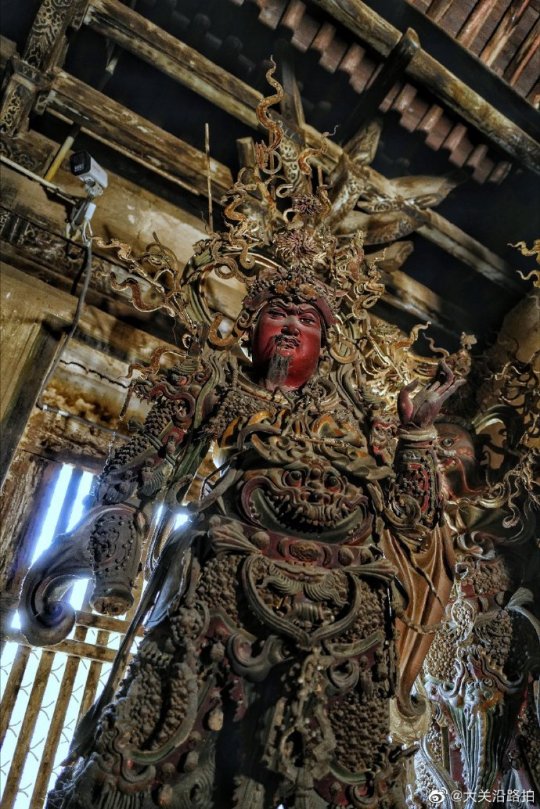
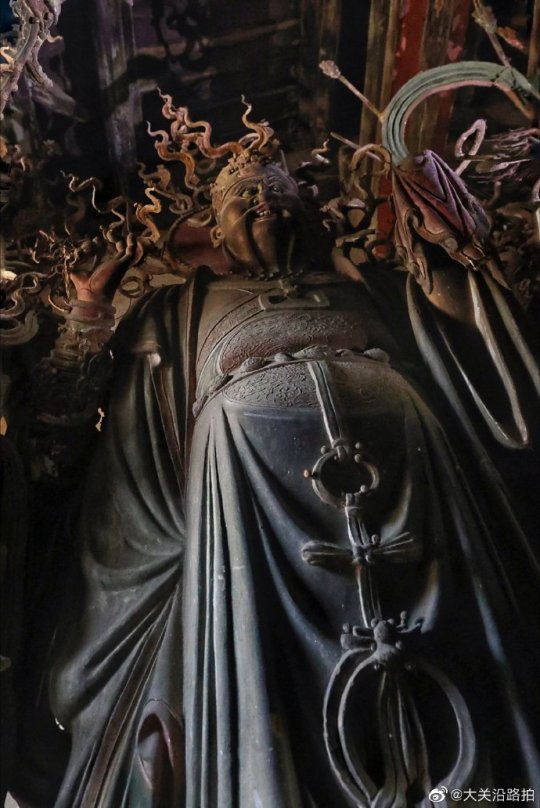
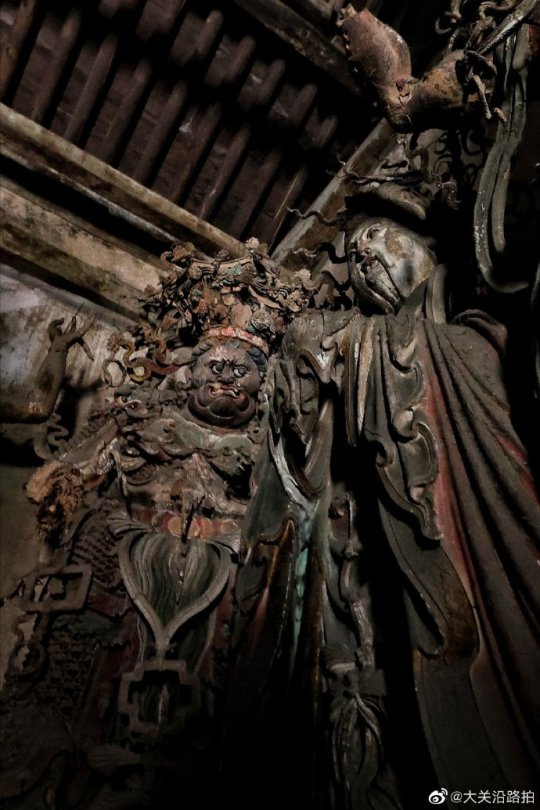
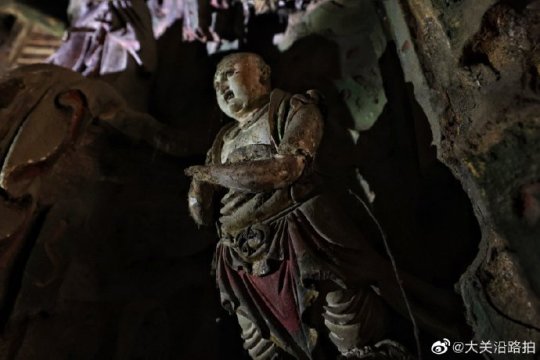


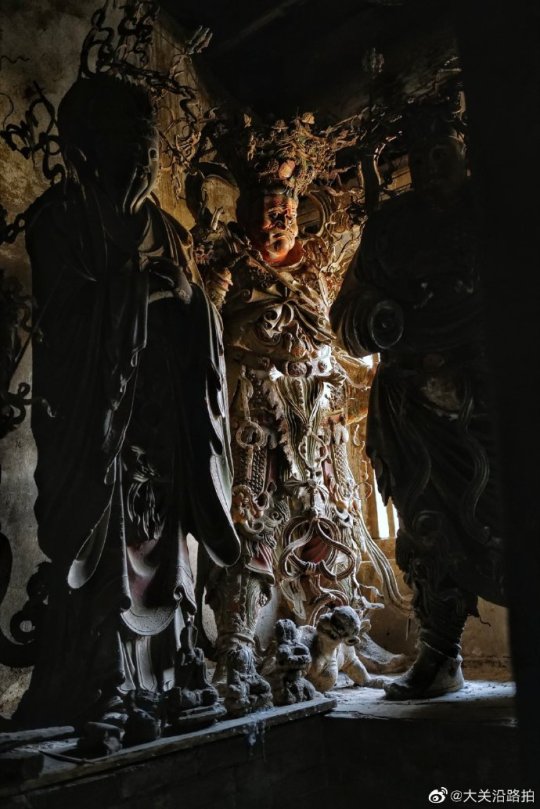
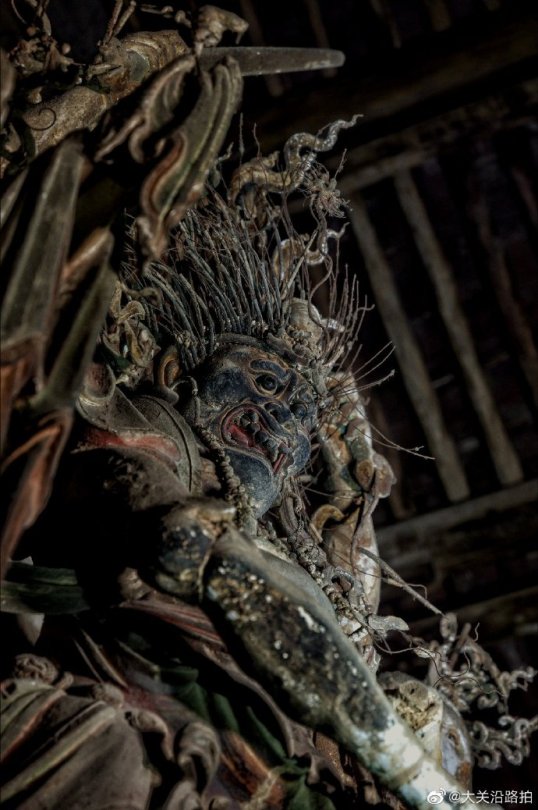
Extreme Baroque: Iron Temple On The Rice Mountain
Grotesque images from the Buddhist Iron Temple (鐵佛寺).
Located on the Rice Mountain (米山), Mixi (米西村) village, Jincheng, Shanxi, the temple is of an unknown construction date. The earliest record on the stone pillar in the main hall dates back to the seventh year of the Dading (大定) period of the Yuan or Jin dynasties. There is evidence that the temple was reconstructed in the third year of Wanli (1575). However, in the county annals, it is mentioned no earlier than the Qing dynasty.
These astonishing, presumably Ming statues owe their creation to the proximity of an iron ore. Iron frames made it possible to give the clay figures intricate poses and frilly decor.
Photo: ©大关沿路拍
#ancient china#chinese culture#chinese mythology#chinese art#chinese architecture#yuan dynasty#jin dynasty#chinese temple#statues#sculptures#scultpure#buddhist temple#buddhist#buddhist deities#religious art#buddhism#ming dynasty#qing dynasty#statuary#religious imagery
208 notes
·
View notes
Text

Chinese Temple in Singapore
British vintage postcard
#british#postkaart#photo#vintage#postkarte#postal#singapore#postcard#temple#photography#briefkaart#tarjeta#carte postale#chinese#ansichtskarte#chinese temple#historic#sepia#ephemera
6 notes
·
View notes
Text
Discover Exquisite Chinese Decorations at Chinese-Temple.
Embark on a journey through our curated collection of Chinese decorations at Chinese-Temple. Explore an array of intricately crafted ornaments, traditional artworks, and cultural embellishments that add a touch of elegance to any space. From vibrant tapestries to ornate figurines, immerse yourself in the rich heritage and timeless beauty of Chinese decor. Whether you're seeking to adorn your home or enhance your cultural collection, our selection offers something for every enthusiast. Experience the essence of Chinese craftsmanship and elevate your surroundings with our captivating decorations. Explore now!
0 notes
Text



Southeast-asian chinese miku but she’s a 4th gen immigrant who’s never gotten to try hanfu on in her life because we only have cheongsams here,,,
i’m also part peranakan so heres peranakan miku
#hatsune miku#my art#初音ミク#yes thats a miku fan#shes just like me for real#growing up i never realized that qipao wasn’t technically the original chinese trad clothing#anyway yes im a 4th gen immigrant thats very disconnected from my culture#i thought of drawing peranakan miku in a kebaya too#you get to witness my atrocious mother tongue handwriting#vocaloid#artists on tumblr#vocaloid fanart#renting a hanfu to visit a temple...#sea chinese miku would be like. 150 cm#international miku
3K notes
·
View notes
Text

Caow Eng Bio - the only true Chinese temple (kelenteng) in South Kuta. This temple was built many years ago by Chinese immigrants from Hainan province. This particular area known as Tanjung Benoa was the main trading area of Bali before Denpasar.
1 note
·
View note
Text
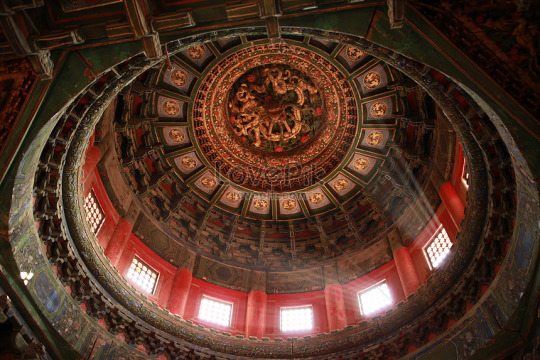
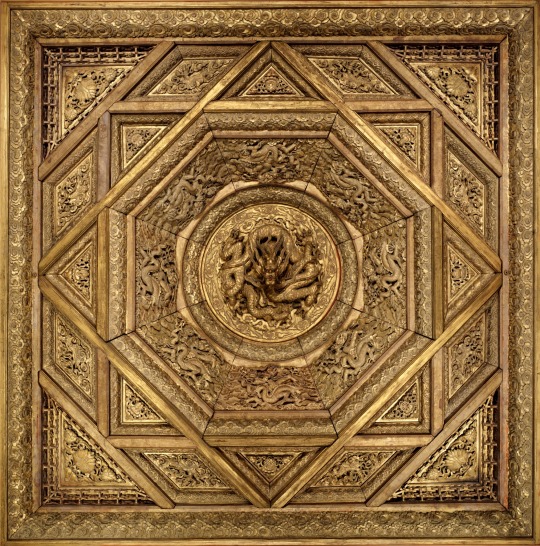
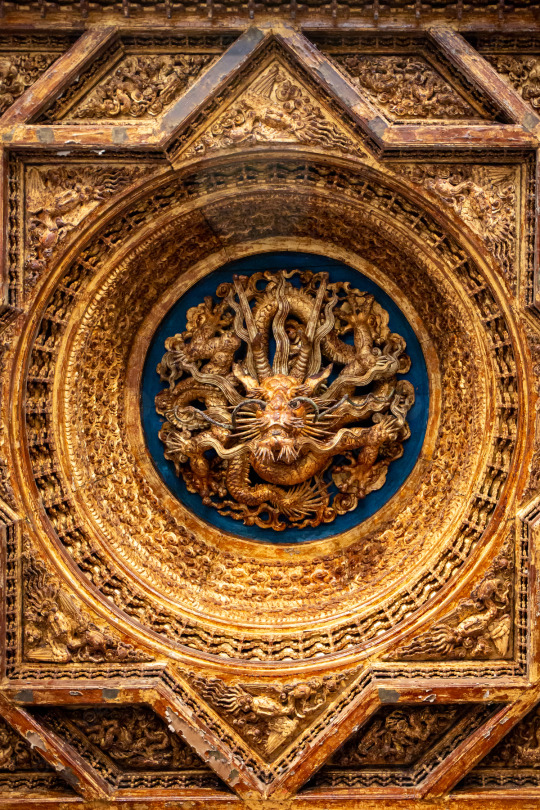

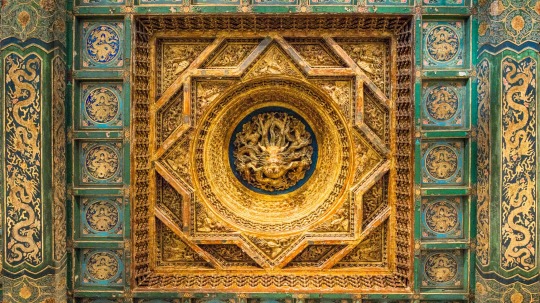
🐉 Caisson Ceilings | 藻井 🐉
A Chinese architectural feature typically found in the ceiling of temples and palaces, usually at the centre and directly above the main throne, seat, or religious figure.
#chinese culture#chinese architecture#asian architecture#asian culture#east asia#China#dragons#ceilings#temples#palaces#chinese mythology#east asian cultures#dynastic china
473 notes
·
View notes
Text
[Hanfu · 漢服]Chinese immortal Hanfu Based On Ming Dynasty Zhengtong ear (1439AD)Fahai Temple Murals
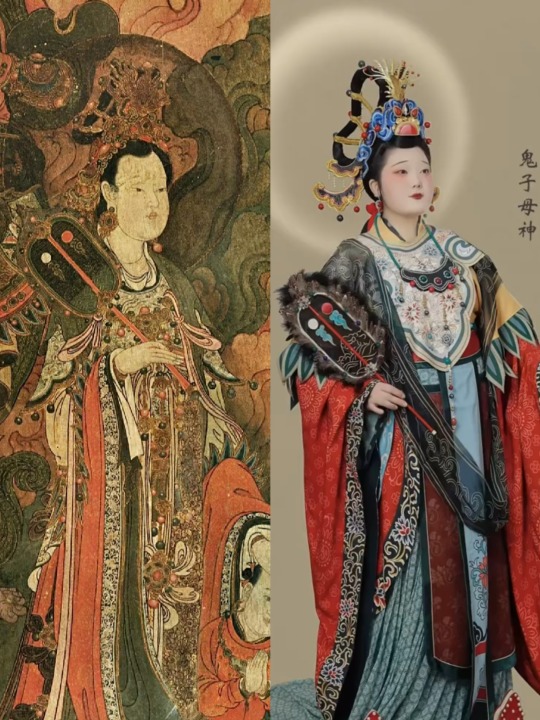
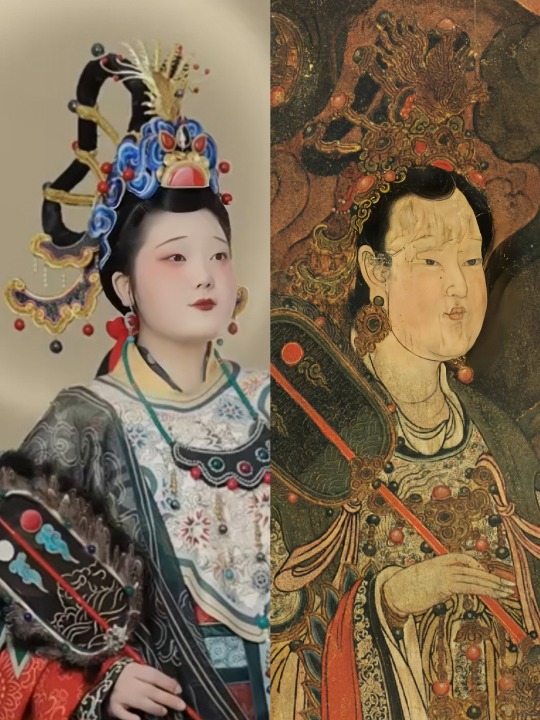





【Historical Artifacts Reference 】:
Ming Dynasty "鬼子母神" in the mural of Fahai Temple in Beijing,China.


【About the "鬼子母神" 】
鬼子母神,also known as Hārītī (Sanskrit),is both a revered goddess and demon, depending on the Buddhist tradition. She is one of the Twenty-Four Protective Deities of Mahayana Buddhism.
In her positive aspects, she is regarded for the protection of children, easy delivery and happy child rearing, while her negative aspects include the belief of her terror towards irresponsible parents and unruly children.
In both Chinese and Japanese Buddhism, she is venerated as a protector deity, but in many folk traditions is often recognized as a female demon of misery and unhappiness towards children and parents.
In Chinese Buddhism, Hārītī is also known as Hēlìdì (訶利帝) or Hēlìdìmǔ (訶梨帝母). In Chinese tradition, she is one of the Twenty-Four Protective Devas (二十四諸天 Èrshísì zhūtiān), a group of Dharmapalas who are venerated as protectors of Buddhists and the Dharma.Statues of this group (and Hārītī) are often enshrined within the Mahavira Hall in Chinese temples and monasteries.
————————
📸Recreation Work:@粉墨长安古典妆造
🔗 Xiaohongshu:http://xhslink.com/cNP1Hz
————————
#chinese hanfu#immortal Hanfu#hanfu#hanfu accessories#hanfu_challenge#china#chinese traditional clothing#chinese#Buddhist#buddhist art#鬼子母神#Fahai Temple Murals#chinese art#ancient china#漢服#汉服#中華風#Ming Dynasty
418 notes
·
View notes